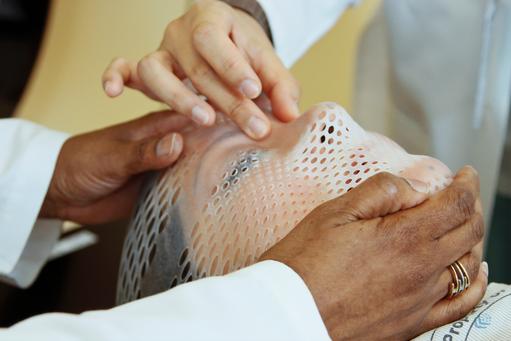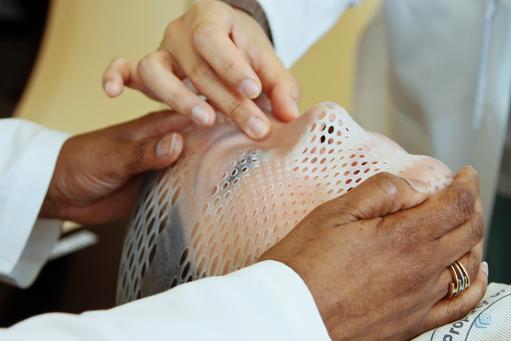Tag

Action Radiotherapy
UK’s only charity dedicated to improving radiotherapy treatmentDirectory:
Expertise:
Action Radiotherapy believes that every cancer patient in the UK should have access to the best radiotherapy treatment available.
We aim to support radiotherapy research and development and support radiotherapy professionals by providing online tools to enhance collaboration.
Radiotherapy is effective and inexpensive compared with some cancer treatments and second only to surgery in its potential to cure cancer. Even small improvements in how radiotherapy is delivered could lead to large increases in the number of patients cured, and improve palliative treatment for others
Action Radiotherapy was launched in the House of Lords in July 2010. It grew out of the Academic Clinical Oncology and Radiobiology Research Network (ACORRN) which was launched initially by the National Cancer Research Institute in 2005 to harness the power of the radiation research base in the UK.
Action Radiotherapy receives no government or other funding and its activities are entirely dependent on charitable donations.
view this profile

Karol Sikora
Professor, Cancer ExpertProfessor Sikora is a British physician specialising in oncology. He is medical director of Rutherford Health, and Director of Medical Oncology at the Bahamas Cancer Centre. He is also Professor of Medicine at the University of Buckingham, and a partner in and dean of Buckingham's medical school.
Professor Sikora studied medical science and biochemistry at Cambridge, where he obtained a double first.
After clinical training he became a house physician at The Middlesex Hospital and registrar in oncology at St Bartholomew’s Hospital. He later became a research student at the MRC Laboratory for Molecular Biology in Cambridge working with Nobel Prize winner, Dr Sydney Brenner.
He obtained his PhD and became a clinical fellow at Stanford University, California before returning to direct the Ludwig Institute in Cambridge.
He has been Clinical Director for Cancer Services at Hammersmith for 12 years and established a major cancer research laboratory there funded by the Imperial Cancer Research Fund. He chaired Help Hammer Cancer, an appeal that raised £8m towards the construction of the new Cancer Centre at Hammersmith. He became Deputy Director (Clinical Research) of the ICRF.From 1997 to 1999 he was Chief of the WHO Cancer Program and from 1999 to 2002 and Vice President, Global Clinical Research (Oncology) at Pharmacia Corporation.
He has published over 300 papers and written or edited 20 books and is on the editorial board of several journals and is the founding editor of Gene Therapy and Cancer Strategy.
He was a member of the UK Health Department’s Expert Advisory Group on Cancer (the Calman-Hine Committee), the Committee on Safety of Medicines and remains an adviser to the WHO. He currently directs a cancer drug donation programme in Africa.
view this profile

On the 1st November 2006, 43 year old Alexander Litvinenko invited two Russian colleagues for a traditional English afternoon tea at a central London hotel. Litvinenko, a former KBG officer who escaped prosecution in Russia, received political asylum in the UK and became a spy for MI6 as well as the Spanish secret service.
One guest seruptitiously slipped a lethal dose of polonium-210 into Litvinenko's tea. Three weeks later Litvinenko died of radiation poisoning after suffering hair loss, fever, endema, diarrhoea, nausea, vomiting and coma. Today, in thousands of clinics throughout the world, the same radiation that killed Alexander Litvinenko is successfully used to cure or palliate cancer in millions of patients.
Were radiation therapy a drug, it would be a wonder cure.
A booming global device market
Each year worldwide, there are about 13 million new cancer cases diagnosed, about 0.35 million in the UK and some 1.6 million in the US. The National Institute of Health estimates that the annual cost of cancer to the US is about US$227 billion.
About a half of people in the UK and two thirds of Americans diagnosed with cancer receive radiation therapy and radiation oncology has become big business. By 2018 the annual global revenues from the radiation therapy device market are expected to reach US$3.6 billion. Driven by increases in the incidence rate of cancer and increasing demand from emerging markets, the radiation therapy device market is projected to grow at an annual rate of over 9%.
Accuracy with minimal side effects
Radiation therapy employs high energy radiation along a spectrum of different wavelengths. The type and amount of radiation that a patient receives is carefully calculated to destroy cancer cells, while causing as little damage as possible to surrounding healthy tissue. With advances in technology, clinicians are able to give powerful doses of radiation quickly with pinpoint accuracy, targetting only the tumours, sparing nearbly healthy tissue and keeping toxicity levels low. The treatment has minimal side effects.
The genesis
Radiation therapy has its genesis in late 19th century medical experiments undertaken soon after the discovery of X-rays. Twice Nobel Laureatte Marie Curie discovered radium in 1898 and later coined the word "radiation". Radium was used successfully to treat lupus and later was found in hot spring water, which was then marketed as a cure for arthritis, gout and neuralgias.
In the early 20th century, medical science believed that small doses of radiation were harmless and the effects of large doses temporary. Marie Curie was a casualty of this misconception. The widespread use of radium in medicine ended when it was discovered that physical tolerance of radiation was lower than anticipated and exposure resulted in long term cell damage.
In 1934 Marie Curie died of aplastic anemia contracted by excessive exposure to radiation and is buried in a lead-lined coffin. During her life she regularly carried tubes of radioactive isotopes in her pockets and commented on how beautifully they glowed in the dark. Her laboratory is preserved at the Musee Curie, but all her scientific papers are too dangerous to handle and scholars who want access to them have to wear special protective clothing.
Variation in Service
Radiation therapy provision varies significantly across Europe. This is partly because of the financial and technical investments required to establish and operate radiation therapy centres.
In January 2013 The Lancet published a 33 country comparative European study of radiation therapy provision. Researchers found significant disparities in access to radiation treatment, substantial unmet needs and a fair amount of service fragmentation. The Netherlands, Nordic countries and the UK employ a centralized approach, with services concentrated in a few large centres, while in most other European countries the service is more dispersed and facilities vary in size and capacity. The annual number of cancer patients per radiation therapy system ranges from 307 in Switzerland to 1,583 in Romania.
Exquisite accuracy
The late 1990s was a period of progress in radiation therapy with the advent of 3D radiation therapy, intensity-modulated radiation therapy (IMRT) and image guided radiation therapy (IGRT) and today, stereotactic body radiation therapy is widely practiced. This differs from conventional radiation treatment and employs multiple imaging modalities such as PET-CT and MRI, which allows the delivery of high doses of radiation with exquisite accuracy to targeted lesions.
Are healthcare systems and radation therapist ready for the future
Radiation oncology continues to evolve as clinicians and medical scientists climb further up the seed-chain of technology and consider next-generation techniques such as adaptive radiation therapy, which focuses on real-time treatment planning. Recently, the University of Texas, MD Anderson Cancer Center in Houston, US, joined an international research group dedicated to merging radiation therapy and MRI technology, which is expected to deliver images of a patient's soft tissues and tumours during therapy.
The MIMA Cancer Center in Melbourne, Florida, US has invested heavily in radiation therapy and its technological infrastructure. It uses information technology to pull together the interfaces between its treatment planning, treatment delivery and information management systems and provides a repository for images, clinical documentation, scheduling, treatment plans and follow-ups. MIMA is paperless and treatment planning images are immediately sent to treating physicians' image enabled cell phones, which allows them to view images and check data anywhere and at any time. Treating physicians also use their mobile phones to show patients images of their progress.
Such technologies are expected to enhance radiation therapy, but they are also expected to generate petabytes of patient data, increase collaborative and image-dependent workflow and require significant investments in information technology infrastructure.
Are healthcare systems and radiation therapist ready for this?

Radiotherapy is an important treatment for cancer. It is one of the most common used and consists of giving high energy Xrays directly to a tumor. The Xray beams are shaped to hit the tumor and not the adjacent tissue. The Xrays kills the cancerous tissue by affecting the DNA of the cancer directly. Radiotherapy is an essential treatment for many cancers.
Some cancers have spread at the time when they are diagnosed and require different types of treatment and surgery cannot completely contain the disease. Other types of cancer do not require surgery and other types of treatment such as chemotherapy and radiotherapy may be sufficient to deal with the disease. Just because a cancer is not operated upon or is referred to as inoperable does not necessarily mean doom and gloom and death from the disease.




